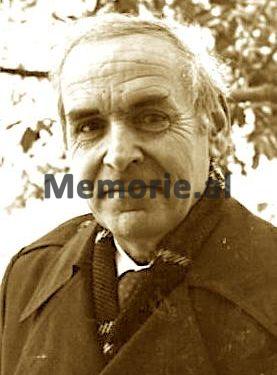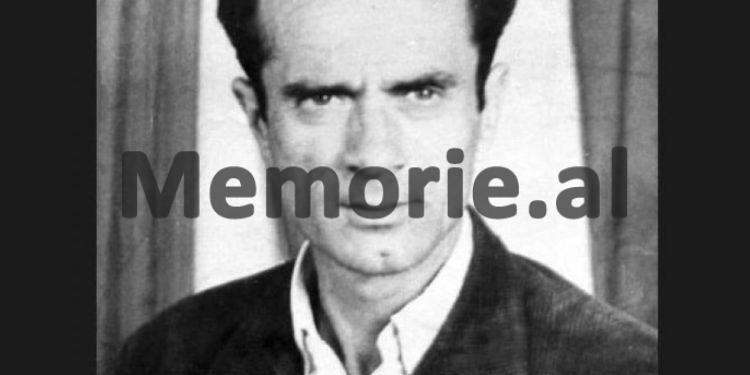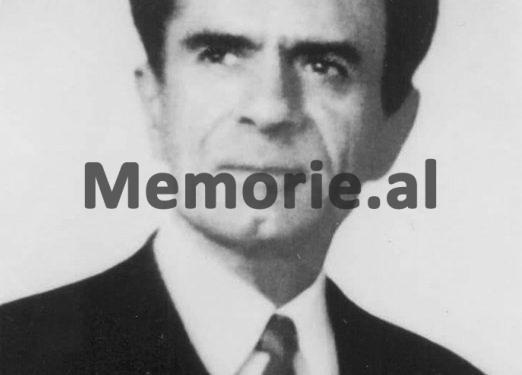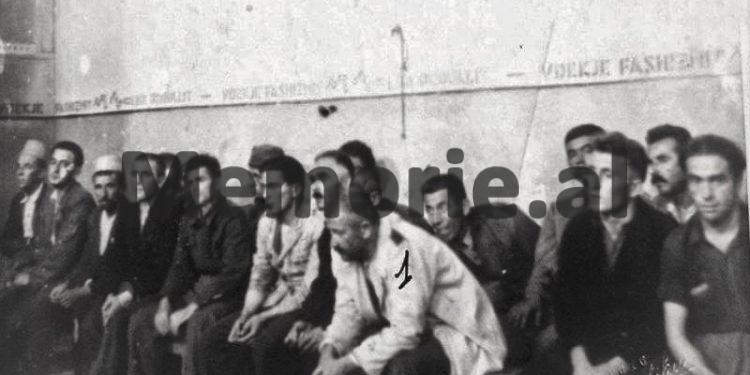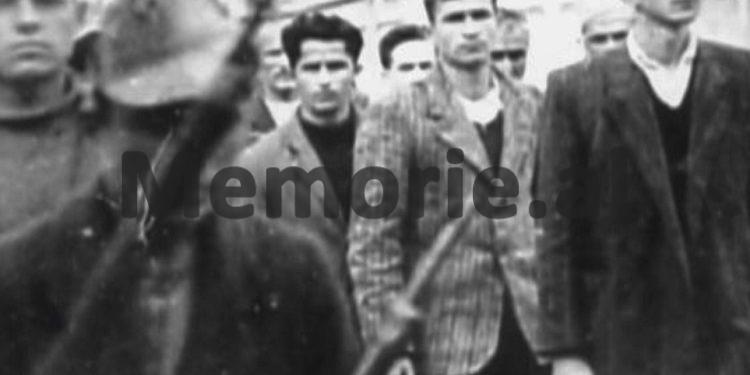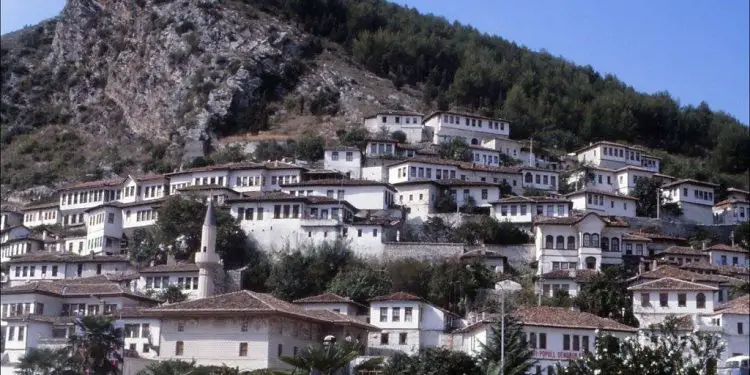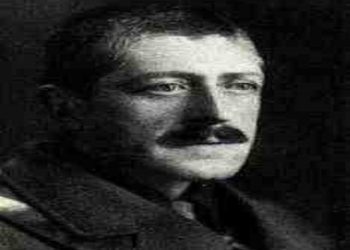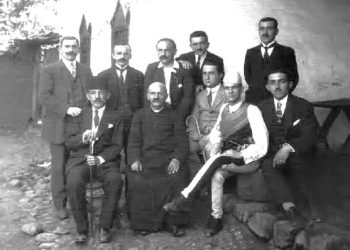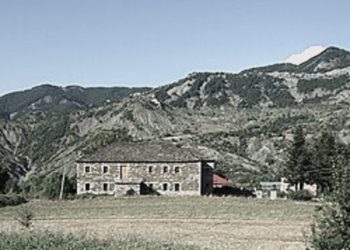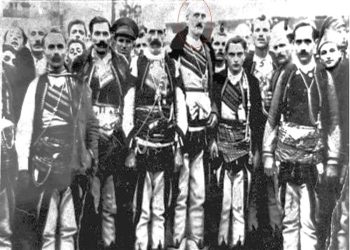From Agim Xh. Dëshnica
Memorie.al / In the city with all those values, Berat, where Nezim Frakulla, Sulejman Naibi, Hasan Zyko Kamberi and the national poet Naim Frashëri lived and created, in the family of Ibrahim Buhara, on May 12, 1920, a child was born, a son, that would bear the beautiful name Vexhi. A boy who would honor the tribe of Bukhara. A man, who would be noted for noble behavior. The future scholar, who would elevate the values of the homeland and Berat. A cultured religious of faith in God. A poet of love for man, the beauties of Albanian nature. The literary world would know him since he was 19 years old.
With the poems “Before Tomori”, winner of the first prize. “Poet”, “Heart”, “Rain”, “The wonder of my village”, “I want to be a butterfly”, “Manushaqja”, etc., with an artistic level and poetic inspiration, which remind readers of Lasgush Poradecin , created according to the Renaissance tradition, with the pure feelings of a good man.
Verses in pure Albanian language, flow sweetly and naturally. The nicknames “Valater Çokdari” and “Lulëzari” were known everywhere at that time. Assessments for Bukhara were published in the press of the time, by Lasgush Poradeci, Ernest Koliqi, Ali Asllani, Nexhat Hakiu, etc.
The drama of his life…!
After his first lessons in Berat, in 1940, Vexhi Buharaja settled in Tirana. There he completed the High Madrasa with excellent results. Then he taught at the same school and directed the magazine “Islamic Culture”. The years 1940-1944 include the writings of a rich creativity of poetry and prose, studies of historical events, translations and editing of articles for the magazine, etc. In these years, he also collaborated with cultural press bodies such as “Njeriu”, “Tomori i Vogël”, etc.
Ernest Koliqi approved a special scholarship for him to pursue higher studies, in oriental studies. But he could not enjoy this rare luck, even for family reasons, at the beginning of 1944, he returned to Berat. On Fridays, invited to the main mosques of the city, he would give “vas” in Albanian, on religious and social issues, his warm voice could be heard with a perfect oratory and philosophy.
Until 1947, he taught in the city’s schools. In that black year, for people of culture, Vexhi Buharaja, like many others, was arrested…! The communist court, on the charge of “agitation and propaganda”, sentenced him to 8 years in political prison. Its rich library was nationalized. The books were transported in a construction truck. The writer of these lines, young at the time, saw with pain the damaged books as they were piled up in the body of the truck.
From Berad prison, he was sent to the Maliqi camp. The names: swamp, canal, Maliq, Roskovec, Tërbuf, Çerme, remind us of patriotic martyrs, prominent scholars, professors, skilled engineers, writers, people of religious services, etc. After prison, Vexhi Buharaja, in order to provide for his family’s livelihood, underwent a grueling job, since with weak hands, he used the pickaxe again! However, he kept the pen and books nearby, as his most expensive tools.
Breathing in creativity
When the dictatorship would temporarily stop the murderous spree, Vexhiu is allowed to return to education. In secondary schools, he teaches the subject of the Russian language, learned in prison. Then he was assigned to work for the Museum of Berat. When scientific institutions had a great need for his knowledge, in 1965, he agreed to collaborate with scientific studies at the Institute of History, Language and Literature of the State University of Tirana, later of the Academy of Sciences. For Vexhi Buharana, an inexhaustible research and creative work began. It stands out for quality work, for the history of Albania.
This was seen in the excellent writings, among them the communication about Gjergj Kastrioti – Skënderbeu, on the occasion of the 500th anniversary of his birth, held in a scientific session in Berat. Of particular importance are his translations. As is known during the years of the dictatorship, many pre-war poets and writers were imprisoned or sidelined. The only chance to survive and express their skills were the translations of political writings, poems and novels of foreign literature. Such were; Lasgush Poradeci, Mitrush Kuteli, Vedat Kokona, Sotir Caci, etc.
Vexhi Buharaja also had this fate. At the History Institute, he translated hundreds of Turkish archival documents, which shed light on the time of the Ottoman occupation. Of national value are the translations of the Defteres (registers) of the Turkish administration. Translation of writings and letters from Turkish to Albanian, of our revivalists, such as; Hasan Tahsini, Sami Frashëri, Dervish Hima, etc.
His help shone especially in scientific studies, for toponyms, transcription and translation of inscriptions in the Ottoman language, in writings in many districts of the country, in religious buildings, in castles, in clock towers, in bridges, in ancient houses, etc. .
One of his works with the title; “Monuments of Turkish-Arab culture”, contains about 300 inscriptions, from a time starting from the 15th century to the 20th century. Many researchers used his works for their topics. When mentioning the source of the subject, they noted the formula in short, according to the archive of the Institute of History.
So all this activity of Vexhi Bukhara passed in silence. Often at national conferences these achievements were represented by others who were below his cultural level. However, they were appreciated by local and foreign scholars, such as; the great linguist, Prof. Eqrem Çabej, orientalist Myqerem Janina, German orientalist Prof. Franz Babinger, etc.
In the field of literature, in addition to the poems and writings of Vexhi Buhara, translations into Albanian are known, such as the drama “Besa” by Sami Frashër, the works of Persian and Turkish poets, etc. The publication in Albanian of Saadi’s work “Gjylistan and Bostani”, a pearl of world poetry, was received with special interest by the readers. It is from this language that he pronounces another masterpiece, Firdusi’s “Shahname”. He also prepared an anthology of selected poems of Persian poets.
For our literature, of particular importance is the excellent translation into Albanian by Vexhi Buharaja of Naim’s two volumes of poetry in Persian, “Dreams” (Tahajjulat) and “The Four Seasons”. According to a letter from the publicist Nasho Jorgaqi, known as a compiler of anthologies, with writings by Albanian authors, he asked him for help for a statement about these two books.Lasgush Poradeci wrote about those works of art
“For me, two are great in the field of translations from the Persian language, the great Noli in America and the great Buharaja here.” Prof. Eqrem Çabej, after reading “Gjylistan” said: “Only the introductory study, the explanatory notes and the encyclopedic dictionary were enough for Vexhi Buharaja to deserve a scientific degree”. As it appears from the letters, loving and generous, he often gave his unpublished works to others as a source for the topics they had in the program. As a reward, after tiresome requests, some returned and some were lost.
Leaving scientific work
When the communist dictatorship with the class war woke up more furious in 1975, Vexhi Buharaja was fired. This reverse action was met with deep dissatisfaction by honest intellectuals. In the letter of the well-known scholar, Sami Visoka, sent to the Institute of History and the Academy of Sciences, where scientific secretary Luan Omari covered the framework, we read, among others:
“There is no doubt that elements like Vexhi Buharaja should not be fired, but should be preserved and protected, as something very valuable, because as you know, life, age, are rarefiing these specialists with values large, in the field of oriental studies. Elements like Vexhi Buharaja are pearls…”!
Vexhi Buharaja, affected, but by no means broken, however removed from the Institute’s scientific work, continued to deal with literature and science. The rulers without the right school in Berat, to further insult this great man, appoint him treasurer. However, the people of Berat always respected and boasted of him, just like before.
All those who were lucky enough to meet Vexhi Buharana, recognized the idealistic and sweet-natured man, the elegant poet of freedom, the serious and generous scholar, the true Albanian professor. The noble behavior of the president of the Academy of Sciences, Prof. Aleks Budës, who every time came to Berat, met the poet and scholar Buharaja and, talking, walked with him on the city’s promenade.However, he never neglected the pen and the books.
Beloved by all ages, friends or colleagues, he met with young teachers, such as;Muhamer Telegrafçiu or Ramiz Haznedari. From time to time, prominent personalities and patriots in the field of history, such as; Xhevdet Dëshnica, or the historian, Ahmet Kondo, as soon as they returned homesick to their hometown, Vexhiu would go to their house and talk for a long time with them about historical and cultural events in Berat.
From the 70s, the house of Ibrahim Buhara, Sulejman Deshnica and other patriots would be barbarically demolished by the communist government. It was destroyed, the most beautiful and most ancient area of the “Murat Çelepias” neighborhood. It used to have monumental buildings, clean alleys, it came to life near the Osum River, with the purchase of gardens with fruits and vegetables, of all kinds.
Now Vexhi Buharaja, with his rich creativity, is known everywhere, as a poet, publicist, religious-philosopher, orientalist, historian, translator, connoisseur and master of 10 languages, first of all, the classical languages of the East: Persian, Arabic, Ottoman Turkish and new and Russian. After them, from the languages of the West: English, German, French and Italian.
The extinction of creativity
On the eve of great historical changes, after a serious illness and in a difficult economic situation, Vexhi Buharaja would pass away prematurely, on July 6, 1987. He therefore came to life in the month of May of poets, and left unfortunate, when the wind of freedom was felt…! Mykerem Janina, also a victim of the communist regime, wrote with pain: “A treasure, a light of knowledge…a man of character and rare virtues was covered with him…”!
BEFORE TOMORIT
From Vexhi Buharaja
“The torn beauty of the heavens falls on Tomori tonight,
A spirit of old haunts me from afar,
Like a spark, like a sunbeam, it is approaching wave by wave,
Pursued with hot longing, then opened more slowly,
Even descends like a bright star, where life goes to misery:
At the end of my night.
And this light and this flame, that’s kindling a golden sky,
That laughs from the top of the mountain like a sun at dawn,
Gas bathed with coal light that dripped by itself
Even the gas of Aphrodite that glowed from above
From two lips, like a rose, it fell into sweets:
At the end of my night.
The bird of the spirit waved its wings over Tomorin and flew!
The spear of longing is waving, digest the poison, teach!
Say it as the shepherd says when he hears the cuckoo
Go as the hunter’s eye goes through the forest path,
Laugh as a moon spear laughs over the face of snow,
It changes like a thread of gold on the edge of the crown
And sing like a nightingale, with so much longing and trembling
At the end of my day.
And after you have received it, you will be blown away by the beauty
And after you have seen, some spark of love,
Put your head in your arms and listen, O penitent,
As if from Osum’ of life, buchet song’ of the morning.
How sweet words of wisdom flow from God’s mouth,
As sweet words of beauty burst from the lips of the Muse,
How kisses from all sides of the girl, passionate words of love…
It emerges from the bottom of the secret, above the waves of the river,
And it spreads around, as it wakes us up from the night of sleep
Then it climbs high – high, where life flares up in splendours:
On the throne of my day”. Memorie.al




